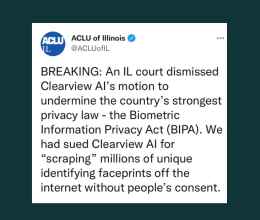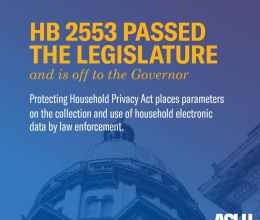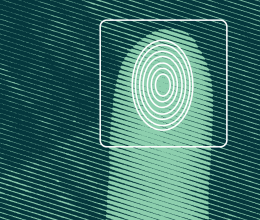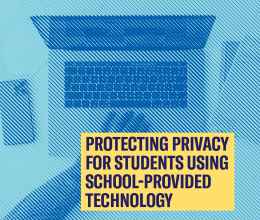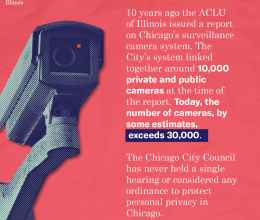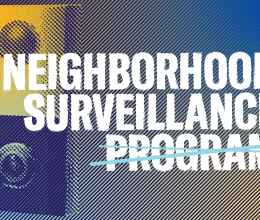
Recognizing the threat to consumer privacy through the personal data captured by sophisticated electronic products in our homes, a pair of state legislators today unveiled the Protecting Household Privacy Act (PHPA) to regulate when data from such devices may be lawfully obtained and collected in Illinois. State Senator Cristina Castro and State Representative Ann Williams outlined the legislation in Chicago today.
So-called “smart” household devices are integrated in many homes and residences in increasing numbers. From a doorbell that includes video and audio functions, to robotic vacuum cleaners, thermostats that regulate heating and cooling systems, and even personal assistant devices that can do everything from turning on lights, playing music and providing information – all of these devices capture personal information about residents and visitors to a home. Such devices have sophisticated sensors with the capacity to collect, store and transmit an almost limitless amount of personal and private information from within the home.
“People in Illinois should not have to choose between using household technological conveniences and preserving the right to privacy in their home. Without any rules in place, the personal data gathered by smart home devices is routinely shared with third parties and law enforcement. The Protecting Household Privacy Act will ensure that Illinoisans’ constitutional rights are being protected while setting reasonable boundaries for the companies gathering this information,” said bill sponsor State Senator Cristina Castro.
The PHPA requires manufacturers of household electronic devices to notify consumers in a clear fashion the various categories of data the device gathers that is disclosed to third parties, as well as the names of all such parties that receive the data.
Additionally, the PHPA requires law enforcement agencies to obtain a warrant in order to get data gathered by a personal device from a private third party. Law enforcement can also obtain the data in an emergency situation or when the owner of the data voluntarily consents to it being shared. When data from a personal device is obtained by a law enforcement agency, PHPA mandates that it be destroyed within 30 days unless there is a reasonable suspicion that the information contains evidence of criminal activity or the information is relevant to an ongoing investigation or pending criminal trial.
“Illinois has long been a national leader in defending people’s privacy rights. The Protecting Household Privacy Act provides an additional layer of protection and transparency for Illinois consumers, while guaranteeing that law enforcement continues to respect peoples’ constitutional rights when gathering information,” said co-sponsor State Representative Ann Williams.
“Smart technology is making its way into our homes at an unprecedented pace, which increasingly provides tech companies and third parties with our most intimate and personal information. We are also seeing more and more deals being struck between companies and governments, like Amazon Ring’s partnerships with local police departments. The PHPA will codify current Fourth Amendment protections and better protect people from technological overreach into their personal lives,” said Sapna Khatri, Advocacy & Policy Counsel, ACLU of Illinois.
Definitions for Households:
The PHPA defines a “household” as any single or multiple family dwelling, including but not limited to a single-family home, house, apartment, mobile home, trailer, building, condominium, duplex, townhouse, or other living quarters, and immediately surrounding area, used or intended to be used as a dwelling place.
Law Enforcement Agencies
The PHPA defines law enforcement agencies as any agency or political subdivision of Illinois, which is vested by law with the duty to maintain public order and to enforce criminal laws.
Third Parties
The PHPA recognizes a third party as either:
- A private entity that is a separate legal entity from the manufacturer of the household electronic device;
- A private entity that does not share common ownership or common corporate control with the manufacturer of the household electronic device; or
- A private entity that does not share a brand name or common branding with the manufacturer of the household electronic device such that the affiliate relationship is clear to the customer.
